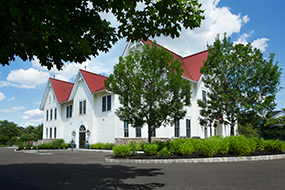Trial lawyers take note: No two brain injuries are the same.
The American Congress of Rehabilitation Medicine defines mild traumatic brain injury as the traumatically induced physiologic disruption of brain function. This may manifest as any alteration in mental state at the time of the incident, such as feeling dazed, disoriented or confused. It may cause physical symptoms such as nausea, vomiting, dizziness, headache, blurred vision and fatigue. It may cause cognitive deficits such as problems with attention, concentration, perception, memory, speech and executive functions. It may include behavioral changes such as irritability, quickness to anger, emotional lability and disinhibition.
In other words, concussions show a wide array of symptoms, which means there is no one way to diagnose any particular concussion, nor is one treatment effective for all concussions.
A concussion is synonymous with mild traumatic brain injury. Loss of consciousness used to be the key determinate in diagnosing concussions, but medical professionals acknowledge that there are more common symptoms, and loss of consciousness may not denote a concussion at all. Major sports leagues have adapted to this understanding of concussions, and their evaluations weigh individual factors, but such evaluations are not widely practiced in amateur and high school leagues. Regarding this last point, it is worth noting that earlier this year, the Missouri State High School Activities Association (MSHSAA) issued a report stating that nearly 900 high school athletes suffered a concussion while playing sports in the fall of 2011 alone. While most of those injuries occurred in football, many also occurred in soccer and softball. Consider these facts:
- 10 to 15 percent of patients suffering a mild traumatic brain injury remain symptomatic with post-concussive symptoms for a year or longer. After one year, 80 percent of mild traumatic brain injury patients are able to work.
- Even though reemployment frequently occurs despite persistent post-concussive symptoms, these post-concussive symptoms prevent patients from performing at their pre-accident levels.
- Factors determining recovery include the age of the injured person, whether that person has a history of previous concussion, the gender of the injured person and whether that person has any co-morbid condition.
- The younger the age of the patient the greater likelihood that they will have more prolonged symptoms. It is not exactly understood why, but it is possible that the developing brain may be more sensitive to pathologic release of excitatory amino acid neurotransmitters (glutamine and aspartate) following trauma than adult brains.
Armed with this information, the trial lawyer fighting for the victim of a concussion without loss of consciousness but with lasting effects can adequately present testimony from expert witnesses, cross-examine the defense expert witness and argue to a fact finder that the absence of loss of consciousness is not a major determining fact to predict what type of cognitive impairments will result. Trial lawyers should ensure that any fact finder understands that there should be no expected time for recovery for any patient who suffers a head injury.
When secondary gain is involved, however, our clients’ complaints of lingering problems receive great scrutiny. Explaining that medical science accepts that the lingering effects of concussions may be permanent in some people at least allows us trial lawyers to put our clients back into a playing field that we can help control, that of credibility.

